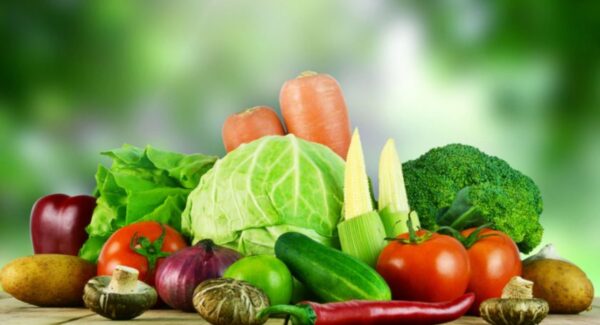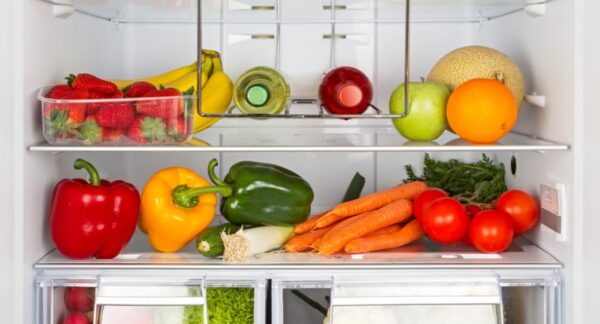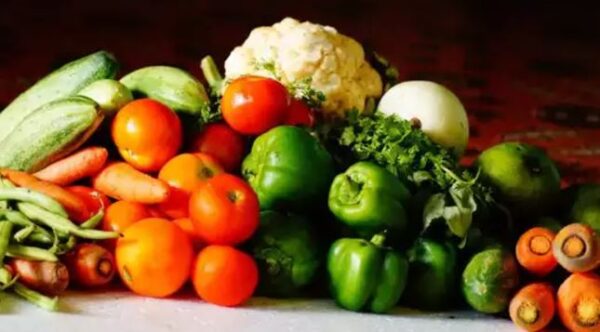Lifestyle
Raw vs. cooked vegetables: Which is the healthiest way to eat veggies?

Vegetables are a great source of nutrition that not only keeps us full and energetic throughout the day, but also helps us steer clear of chronic ailments.
It is the best food to have when you’re on a weight loss journey and can never go wrong, even if you’re just looking to stay fit in general.
However, how you eat your veggies can play a significant role in determining how many benefits you reap from your greens.
Read on to find out which is the healthiest way to eat your vegetables – raw or cooked?
Nutritional differences in raw vs. cooked vegetables
The nutrient your body breaks down and absorbs can be different for raw vegetables and cooked. That said, cooked vegetables have a different nutrient quantity and quality than raw vegetables. Interestingly, minerals such as potassium, calcium, and iron are found in many raw vegetables. Furthermore, some nutrients, particularly water-soluble vitamins, are lost during the cooking process. Raw fruits and vegetables may contain more nutrients like vitamin C and B vitamins, which is why raw vegetables with water-soluble nutrients are more susceptible to heat damage.
Your cooking method can determine the health benefits
If you’re someone who is most into cooking their vegetables rather than eating them raw, then you pay attention to how you cook your veggies.
Some studies suggest that your choice of cooking method can impact the nutritional value of your vegetables. For instance, according to a study conducted at Zhejiang University, researchers found that stir-frying, microwaving, and boiling broccoli can all deplete levels of chlorophyll, soluble protein, sugars and vitamin C from the veggie, whereas steaming broccoli did not have that same outcome.
Apart from that, taking your time while cooking can also deprive your veggies of all their nutrients. Experts suggest cooking vegetables quickly so the nutrients remain intact. Having said that, roasting, barbecuing, or grilling vegetables are some of the best ways to do that.
Another interesting way to cook these days is air frying food, which is considered to be better than deep-fried foods. This to an extent may be true. Since the fryer’s basket keeps the vegetables protected from direct heat source, as compared to deep frying, it retains a high percentage of their nutrients.
Benefits of eating raw veggies
One of the biggest benefits of eating raw vegetables is higher vitamin content. Since they’re not exposed to heat at all, there’s no way the nutrients can break down and lose their nutritional value. This means you’ll likely get more water-soluble nutrients – vitamin C, and B vitamins – which also contain antioxidant properties.
The downsides of eating veggies raw
While eating raw veggies has its benefits, it may not be for everyone. Some people are intolerant towards raw food, especially those with gastrointestinal issues. For instance, cruciferous vegetables, like cabbage, broccoli, cauliflower, and Brussel sprouts are very healthy and nutritious, but they can cause gas or bloating.
Furthermore, some foods are better cooked than eaten raw. For example carrots. They have more bioavailable beta-carotene, which is a source of vitamin A, when they’re cooked than when they’re raw.
Foods that are most nutritious when cooked
Foods such as spinach, asparagus, mushrooms, potatoes, carrots, celery, and green beans are much more nutritious when cooked. However, make sure you’re cooking them right. Other than frying them, use any other form of cooking. Steaming however is said to be the best cooking method for vegetables.
Foods to eat raw (but not always)
There are some foods that have higher nutritional value when eaten raw. These include:
– Bell peppers
– Broccoli
– Onions
– Garlic
But you can always cook them and enjoy!










